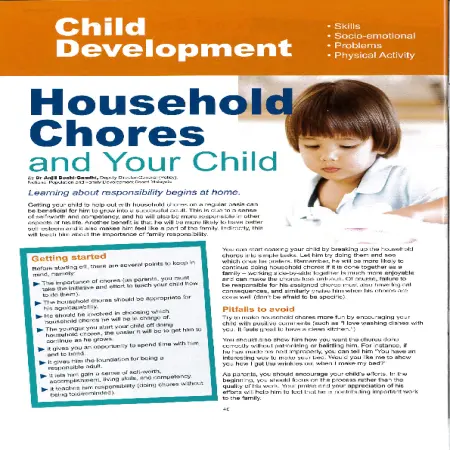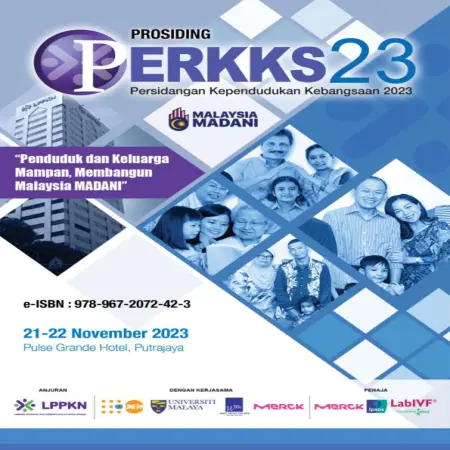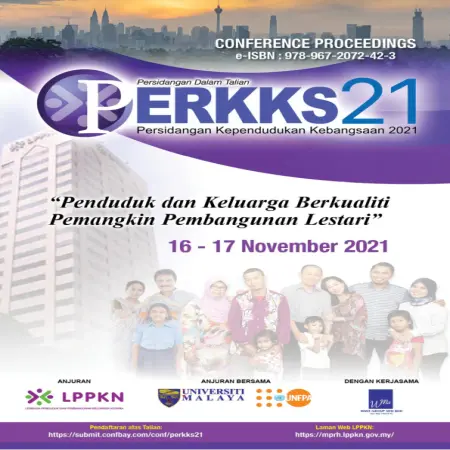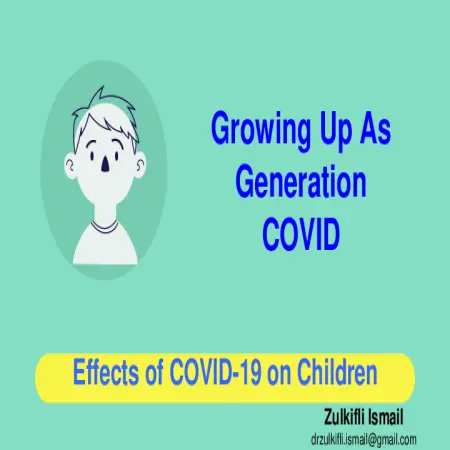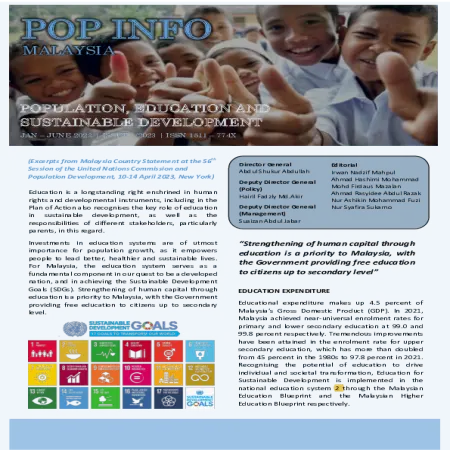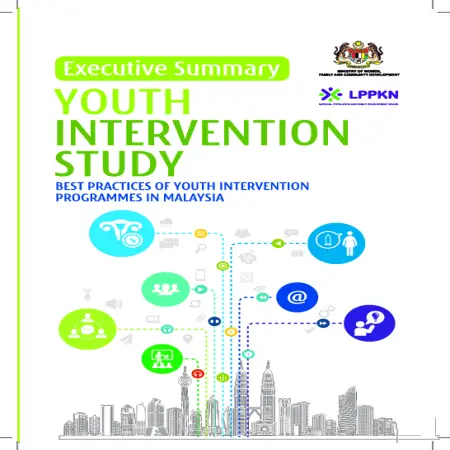TOPICS
Results for Topics : "Child Development"
Article (3)
|
|
Kanak-kanak, kemiskinan dan literasi digital: ke arah masa depan digital yang positif
Item Type: Article
Editor:
Year: 00/12/2021
Abstract: Children living in poverty are often denied the experience and ability to use digital media that is beneficial and valuable. Often these children do not have access to digital media and consequently they do not understand the potential of digital technologies. Children from low-income B40 families living in 'Pusat Perumahan Rakyat' (PPR) are a segment of society that may be affected. This study attempts to offer approaches that can help these children by accessing their level of digital media use and digital skills first. A telephone survey of 308 children living in PPR was conducted in March 2021. The study found that children have limited access to digital devices.
|
|
|
|
|
|
Development of a high-energy nutrient-dense meal as supplementary functional food for improving problem of stunted and under-nourished children
Item Type: Article
Editor:
Year: 00/12/2021
Abstract: Poverty, obesity and lifestyles are the most associated factors of vitamin D deficiency among urban-living children in Malaysia. Vitamin D is necessary for calcium absorption from food to ensure healthy bones and teeth. Vitamin D deficiency can cause soft and brittle bones disease known as rickets in children and osteomalacia in adults. Based on previous research, lack of nutritional knowledge among parents can contribute to nutrition deficiencies in children. To overcome this issue, nutritional education and awareness campaign among parents are needed. Besides campaign, the development of supplementary functional food which can provide crucial nutrients and energy that can assist in brain and body growth seems beneficial.
|
|
|
|
|
|
Household chores and your child
Item Type: Article
Editor:
Year: 00/00/2015
Abstract: Getting your child to help out with household chores on a regular basis can be beneficial for him to grow into a successful adult. This is due to a sense of self-worth and competency, and he will also be more responsible in other aspects of his life. Another benefit is that he will be more likely to have better self-esteem and it also makes him feel like a part of the family.Indirectly, this will teach him about the importance of family responsibility.
|
|
|
|
Book (1)
|
|
Prosiding Persidangan Kependudukan Kebangsaan 2023 (PERKKS 23): “Penduduk dan Keluarga Mampan, Membangun Malaysia MADANI”
Item Type: Book
Editor:
Year: 00/12/2023
Abstract: Collection of papers presented during the 2023 National Population Conference (PERKKS 23), 21-22 November 2023, Pulse Grande Hotel, Putrajaya.
|
|
|
|
Book Section (1)
|
|
Fatherhood program and children’s development: Does it mature?
Item Type: Book Section
Editor:
Year: 00/00/2021
Abstract: The prevalence of social problems and criminal cases among teenagers in Malaysia is at an alarming level. Often, such problems are associated with the fragility of the family institution underpinned by the role of the father. In Malaysia, fatherhood-related programs are still limited and minimal compared to the United States where most initiatives to support fathers have been implemented through father-specific programs designed to improve fathers' economic self-sufficiency, parenting knowledge and skills.
|
|
|
|
Conference or Workshop Item (1)
Module (1)
|
|
Modul Kasih Keibubapaan Digital
Item Type: Module
Editor:
Year: 00/01/2022
Abstract: Since the country was struck by the Covid-19 pandemic, the new normal has led to increased reliance across all layers of society on devices and the internet for various daily activities such as work, learning, shopping, banking, entertainment, and various other matters. The Internet User Survey (IUS) 2020 by the Malaysian Communications and Multimedia Commission (MCMC) found:
i. Internet users in Malaysia increased to 88.7% in 2020 compared to 87.4% in 2018; and
ii. 50% of internet users spent 5 to 12 hours per day surfing the internet in 2020.
In addition to various potential threats that could target children in the cyber world, the IUS 2020 report found that the level of awareness among parents regarding cyber safety is decreasing. The findings of the report indicate:
i. The level of parental control awareness regarding children's internet usage declined from 62.4% in 2018 to 53.3% in 2020;
ii. 62.5% of parents do not use safety control software for the devices used by their children because they are unaware of such applications; and
iii. On average, parents are unable to specify in detail the safety measures needed to protect their children in the cyber world.
Furthermore, Cyber Security Malaysia's Study on the Standard of Cyber Safety Awareness Among School Students and Parents 2021-2022 revealed that the increase in online activities has led to an increased risk of cyber safety for students. According to the report, internet addiction, lack of digital citizenship awareness, and less effective parental control have contributed to increased cyber safety risks for the younger generation.
Recognizing that digital parenting issues indeed pose challenges and pressures on today's parenting duties, LPPKN has taken the initiative to develop the Digital Parenting KASIH Program using the allocation from the Covid-19 Fund (KWC-19) under the Mental Health Advocacy Initiative of the Ministry of Women, Family, and Community Development in 2022. This program aims to empower parents with the knowledge and skills needed to manage the challenges of children in the current digital generation.
The main objectives of the Digital Parenting KASIH Program are:
i. To instill positive values and ethics in the cyber realm;
ii. To enhance parents' understanding of digital challenges; and
iii. To improve parent’s skills in monitoring children’s usage of digital applications.
|
|
|
|
Newsletter (1)
|
|
Population, education and sustainable developmet
Item Type: Newsletter
Editor:
Year: 00/06/2023
Abstract: Education is a longstanding right enshrined in human rights and developmental instruments, including in the Plan of Action also recognises the key role of education in sustainable development, as well as the responsibilities of different stakeholders, particularly parents, in this regard.
Strengthening of human capital through education is a priority to Malaysia, with the Government providing free education to citizens up to secondary level. Malaysia is also undertaking efforts to ensure that the education system is robust, resilient and fit for the future.
|
|
|
|
Research Report (1)
|
|
Executive Summary: youth intervention study: best practices of youth intervention programmes in Malaysia
Item Type: Research Report
Editor:
Year: 01/07/2020
Abstract: In the decades, Malaysia has undergone rapid economic, social and cultural changes which impacted not only the daily lives of its people but also their worldview and values. This is particularly so for young people, as excessive exposure to information from the social media, internet and pornography had inevitably influence their lifestyle and behaviour. The socio-cultural changes are likely associated with an increased rates of non-marital sexual activity, increased rates of sex partner change and increased rates of sexually transmitted infections (STIs). In 2005, the Ministry of Women, Family and Community Development through NPFDB introduced the PEKERTI Programme to be implemented at KafeTEEN adolescents centres. The programme provides reproductive health services, counseling services and education and skill building to promote a healthy life and inculcate positive attitudes and moral values among young people.
|
|
|
|







